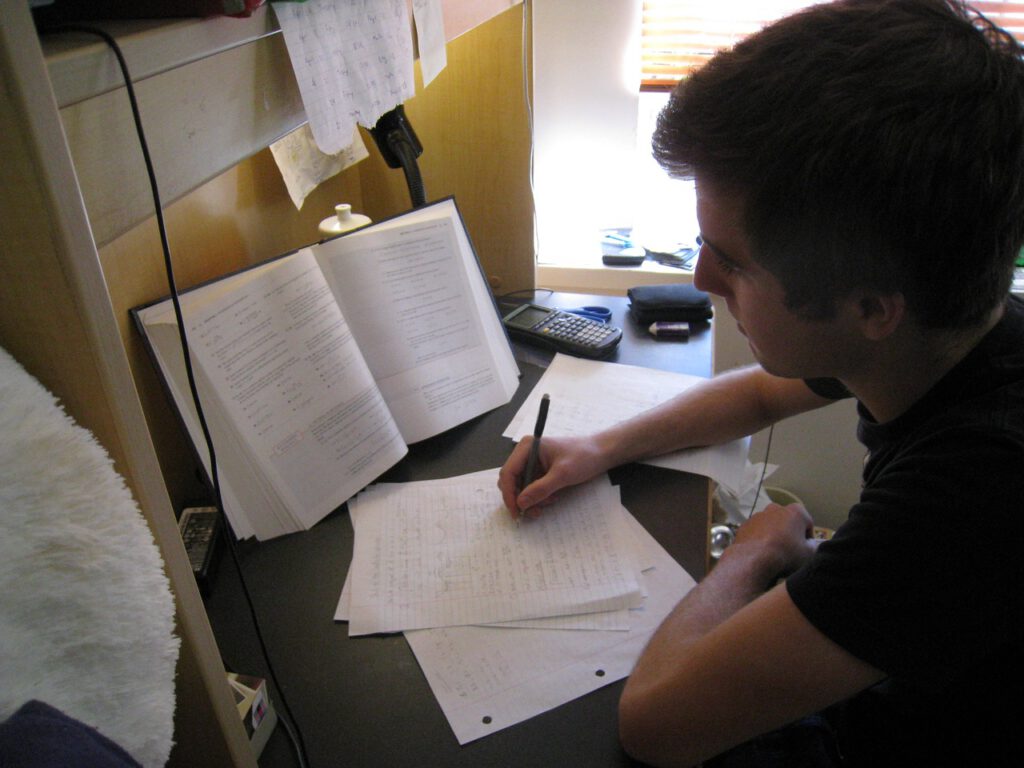If ‘no student should be disadvantaged’ don’t allow post closure work to be included!

An urgent demand that @Ofqual issue an unambiguous statement stating that student work undertaken since the 20 March School shutdown can not be used to inform student grade assessments
The cancelation of GCSE and A Level exams in response to COVID-19 was always going to be difficult – it has undoubtedly raised many concerns and thrown up a host of problems never experienced before.
Schools and colleges across the entire country closed on 20 March until further notice – this much at least, is non-discriminatory.
However, since that date the Government has failed to provide any clear guidance to schools and colleges about what they should be doing now. This is particularly problematic for year 11 and 13 students in the wake of the cancellation of their GCSE and A level exams.
Schools have been left to their own devices, making unilateral decisions about whether to continue to teach these year groups and set and mark work.
Regrettably, against a backdrop of league tables, these decisions are being considered in a spirit of competitiveness rather than collaboration.
This applies across different regions, different schools and perhaps most perniciously different sectors i.e. state vs. independent. In one example two teachers from the same department, in the same school, have vastly different approaches to the setting and taking in of work, post closure.
The big question is:
Can the work being done now (where it has been encouraged and individual circumstances allow it) influence or ‘inform’ the teacher assessment student grades?
Opinions on this are varied. Many teachers are under the impression that post-closure work can inform the assessment grade they give and are openly relating this to their students and parents alike. Aside from whether this is actually true, it is certainly causing anxiety. It puts undue stress on students and families, some already suffering trauma resulting from the crisis and therefore can only be seen as discriminatory.
The only rational conclusion in these circumstances, is that in the interests of fairness, such work should not be used to inform the grade assessment. Ofqual should immediately put out a clear amendment to the current guidance, stating unequivocally that such work i.e. work undertaken since the 20 March shutdown, cannot and must not, inform grade assessments. Ofqual should do this as a matter of urgency – no time can be lost.
The distinction between pre and post 20 March work is blurring all the time. Moreover, they should do this in their own interest – to constrain the inevitable arguments that will ensue. They, heads of centre and teachers will all be subject to the indignation of furious parents contesting their child’s results.
Why has Ofqual left this window open?
A cynical view might be that the private sector will be facing uproar regarding fees and potential refunding of fees paid for education provision this current term with no input on the grade achieved. Whilst this is problematic it is a misuse, or worse – an abuse of state machinery, to allow avoidable inequalities into the assessment process simply to quell financial arguments in the private sector.
What has Ofqual actually said on this?
They have published two documents laying out guidance and a consultation has just closed.
However, there has been dereliction of duty on this issue:
- The first document gives a woolly reference (see below)
- The second, whilst going into detailed proposals and discussion of bias, ruefully does not mention it at all?
Here is what they have to say on it:
|
Should schools and colleges be setting students new work to inform the grade they submit? There is no requirement to set additional mock exams homework tasks for the purposes of determining a centre assessment grade, and no student should be disadvantaged if they are unable to complete any work set after schools were closed. Where additional work has been completed after schools and colleges were closed on 20 March, Heads of Centre should exercise caution where that evidence suggests a change in performance. In many cases this is likely to reflect the circumstances and context in which the work is done. [Ref. Guidance – Summer 2020 grades for GCSE, AS and A level, Extended Project Qualification and Advanced Extension Award in maths. Ofqual] |
Ofqual have put into place measures and procedures designed to address bias in assessment of grades – giving priority and emphasis to ranking of students within the school/establishment in combination with analysis of centre’s previous levels of attainment. Guidance on this part is relatively clear and attempts to squeeze up or bolster grades are to some extent addressed.
This strategy is supposedly enhanced by the belief that if advantage and inequality persist, this can be ironed out through the secondary process i.e. standardisation of data/results by the exam boards.
However, if standardisation is the true aim, better to iron out data variation at source, i.e. in the initial data set, rather than include this partially available, ‘dodgy’ data set only for it to be cleverly, statistically, accounted for at the secondary stage of grade standardisation.
Demand that @Ofqual ensure that student grade assessments are fair! Sign the petition:https://t.co/8v3ZT3R5lU pic.twitter.com/JKK4ffUwx1
— FE News – The #FutureofEducation News Channel (@FENews) May 1, 2020
This can be achieved through clear instruction that post 20 March work is inadmissible. If ‘no student should be disadvantaged’ with regard to post closure work, then its very simple – don’t allow it to be included.
I urge you and anyone with concerns for fairness and equality to put pressure on Ofqual to act now – clear up this injustice.











Responses